A Bike Lock Mount
2025-12-09
I recently moved to a more bikeable neighborhood, which means I’ll be biking more places and leaving the bike behind instead of putting a bike on the car and doing a ride all at once. I have an old Abus U-lock from college that I would lock around the seat post or handlebar where it gets in the way.
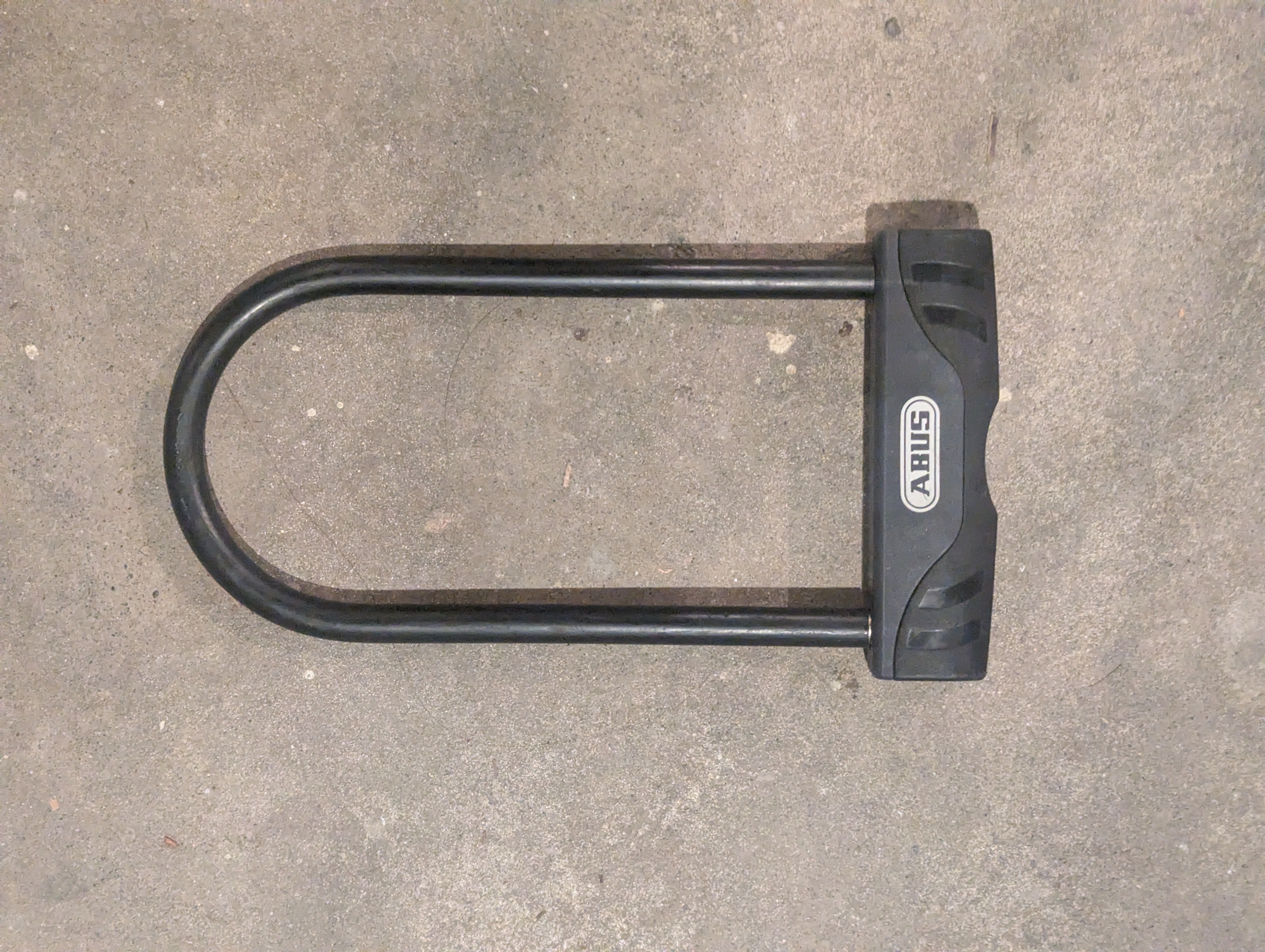
It came with a mount, but it was bulky so I lost it long ago between moves. One aspect that I did like was that instead of having a protrusion on the lock, it locked to the holder directly. The lock body went in one slot, the U through another and you just locked it to hold it in place. So I decided to recreate something like that but a little sleeker. Since I shouldn’t need a water bottle on short rides around town, It’s designed to bolt on to a water bottle cage mount.
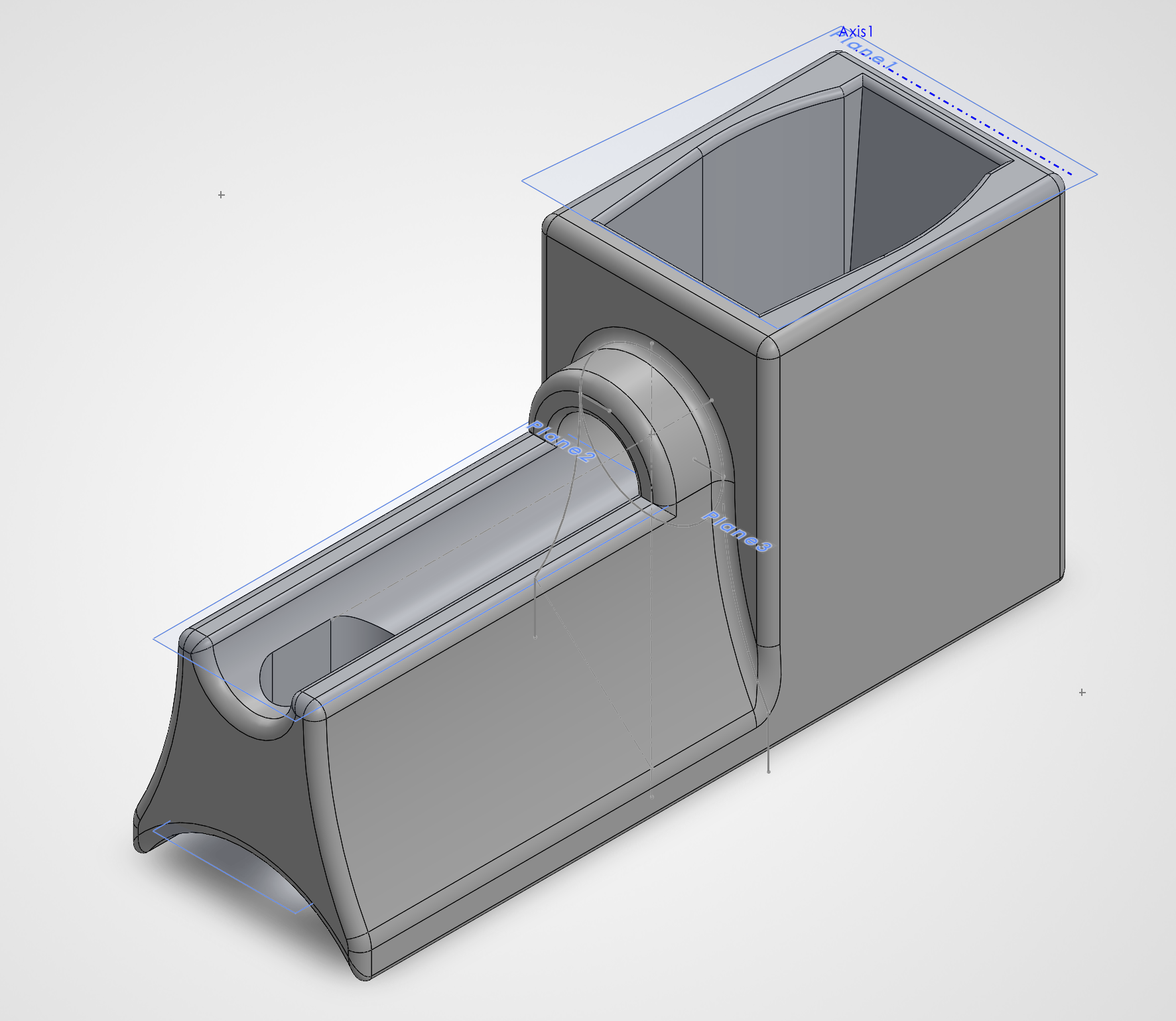
It’s my first time with any CAD modeling but it was pretty straight forward to take measurements from the lock, extrude them, sweep some angles and fillet the corners. It was also surprisingly cheap, just $6 to get it printed in ASA, but another $8 for shipping.
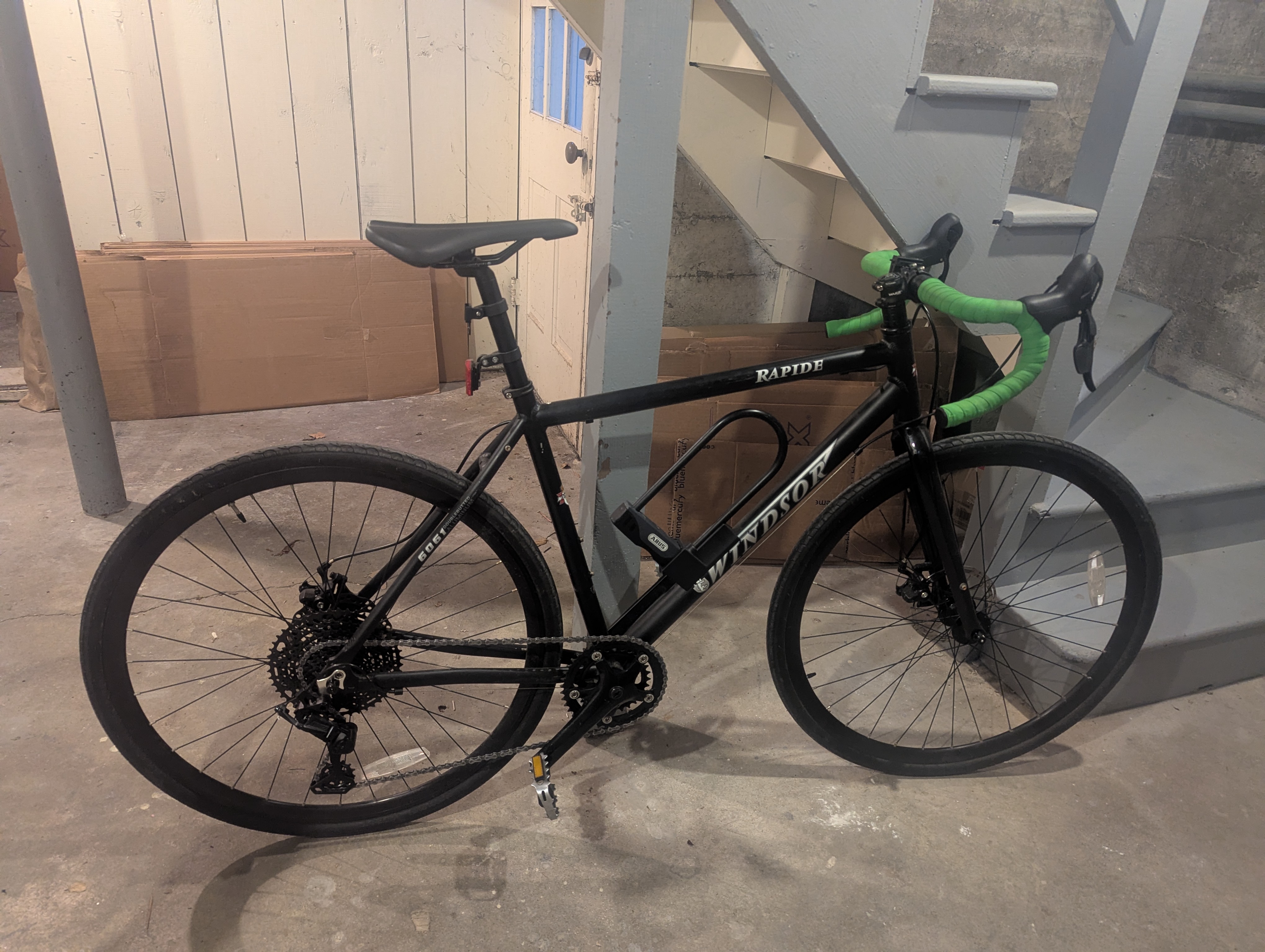
It turned out great! I had oversized the holes for the lock by 0.2 mm and it turned out to touch all sides of the lock without being tight. It’s nice because it keeps the lock from rattling during the ride. It seems secure and has no problem picking up the whole bike by the lock. The design is available here.
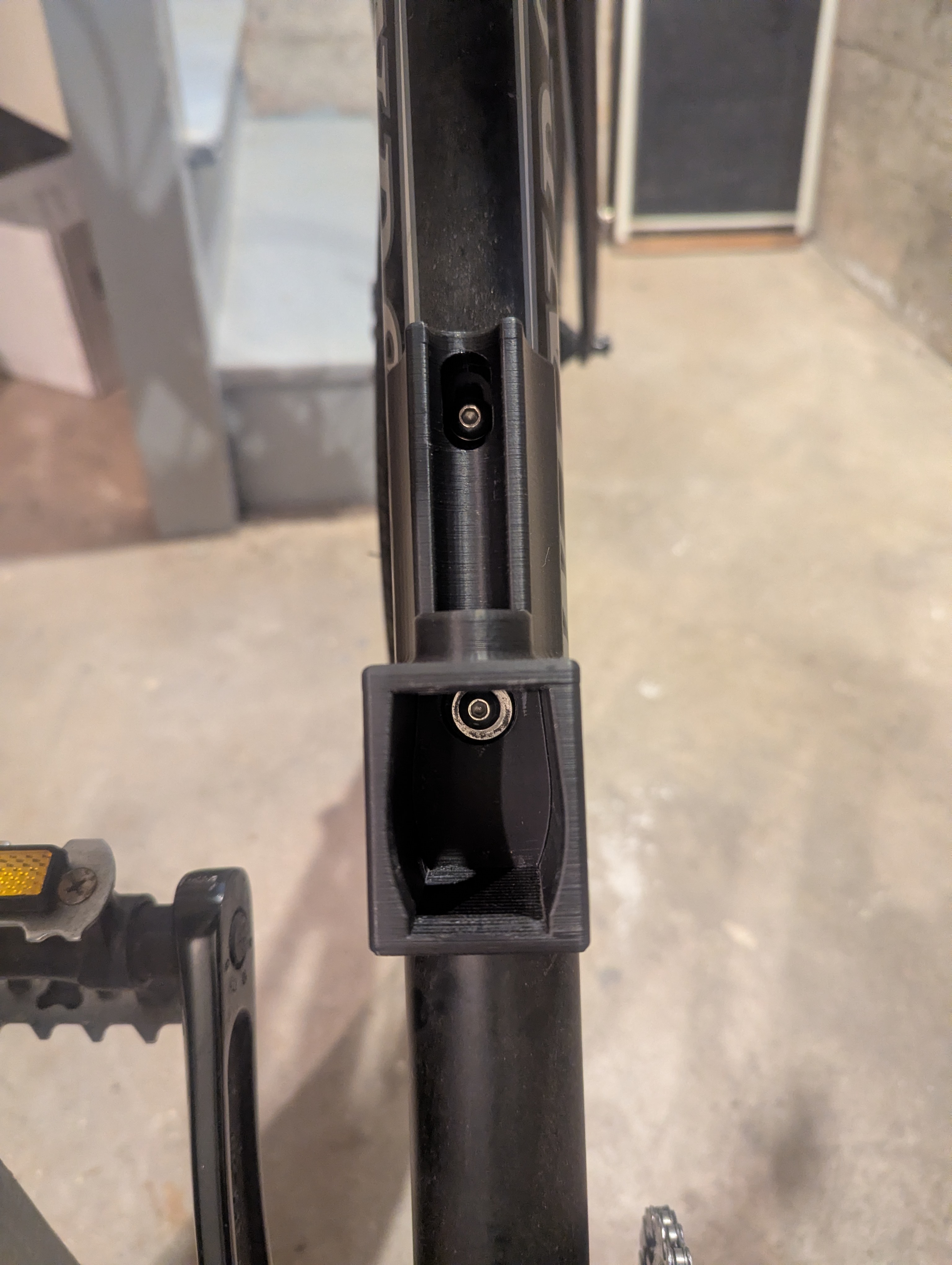
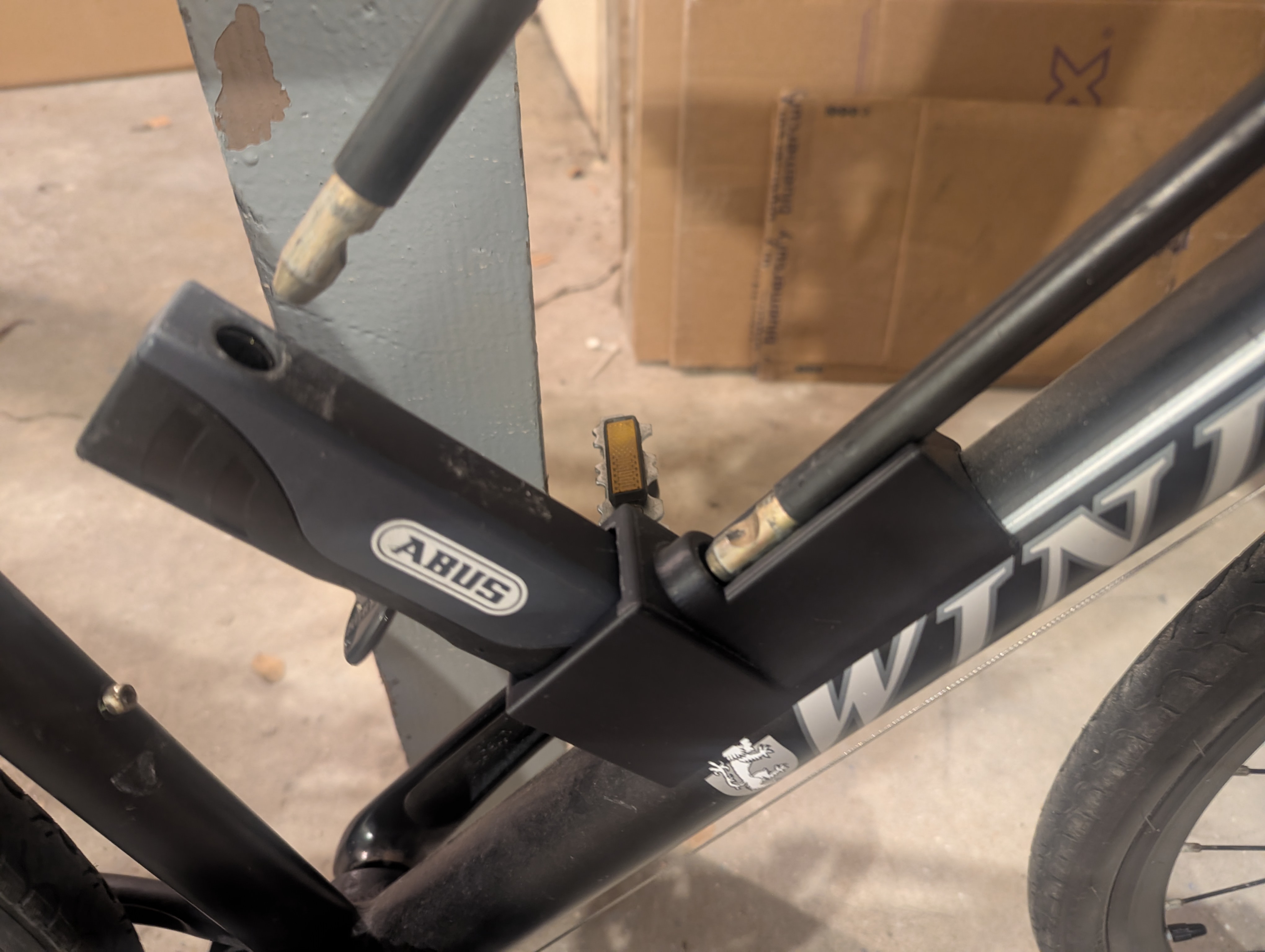
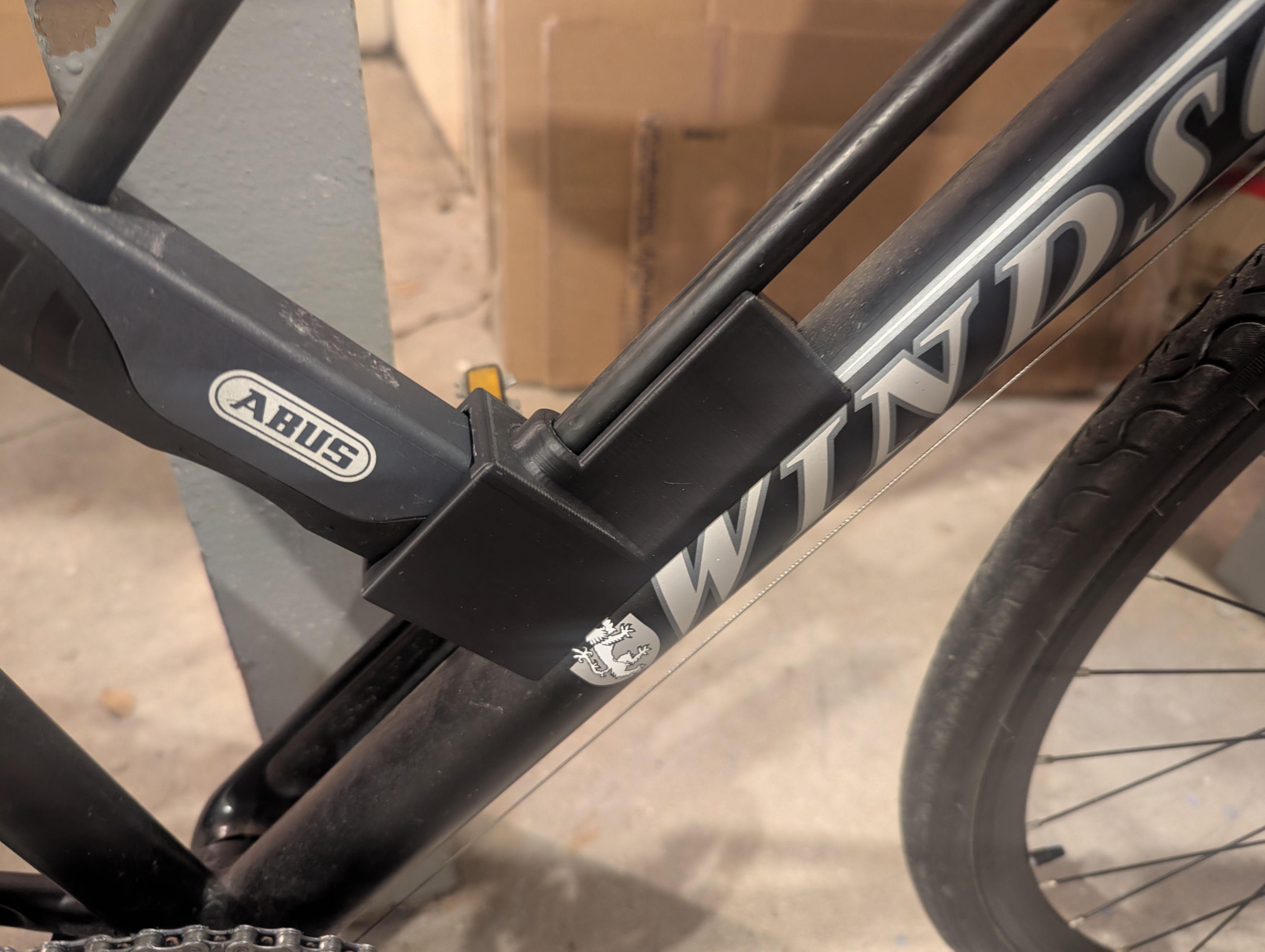
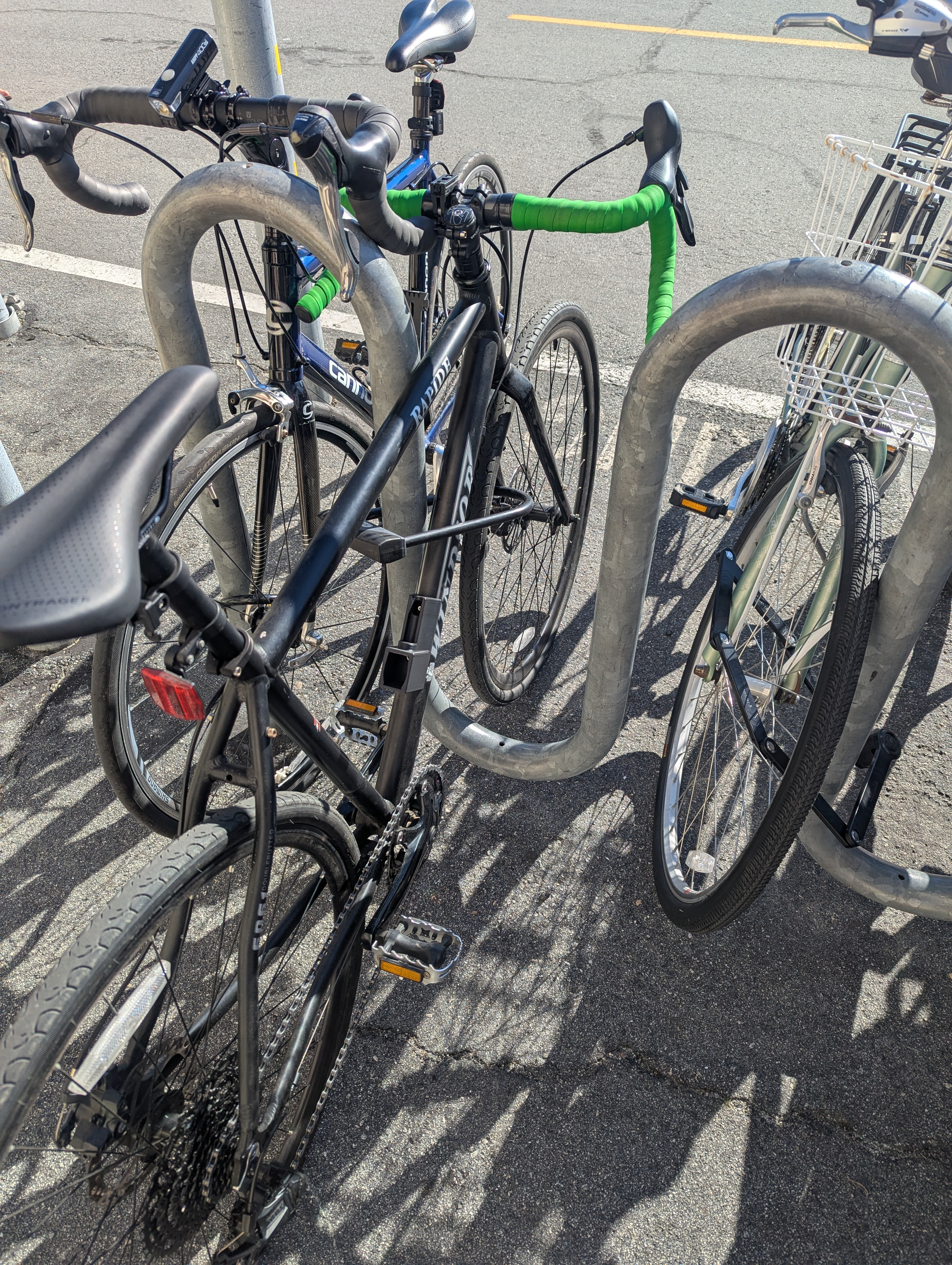
Maybe I don’t need to worry about bringing a lock everywhere. The people on either side of me have only locked their front wheels and both have quick release skewers!